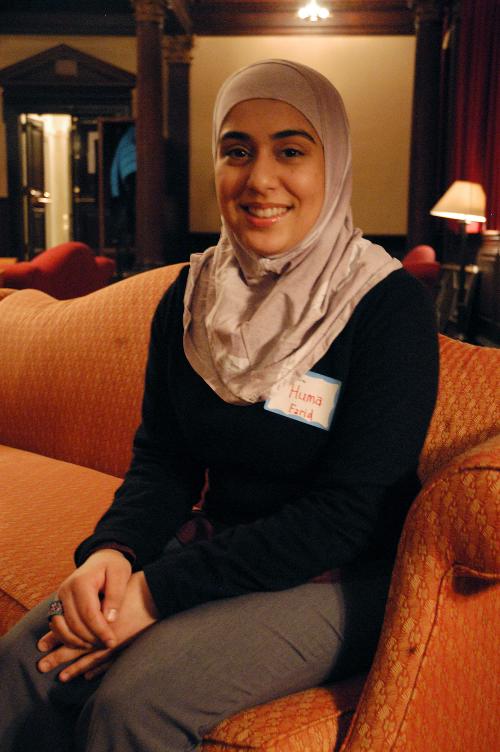
Offering Relief At Home and Abroad
This September, Huma Farid ’06 knew things at Harvard weren’t right.
“I came back to school, and people didn’t even know there was an earthquake,” she says. “Harvard is the place where people come together to talk about issues, and everyone is so intelligent and so amazing, and for people to not even know that this occurred was really upsetting.”
After the earthquake that rocked Northern Pakistan, Farid, whose father’s family is from a village near the earthquake’s epicenter, spearheaded a coalition of student groups that planned relief events such as the Earthquake Banquet. “I realized it was more important than writing my thesis and worrying about schoolwork.” So instead, Farid fretted over catering, speakers, and venues.
Of course, it doesn’t take a crisis for Farid to give her time generously: she is a Program Director for Project Health and participates in a peer-counseling program. The Boston Site Director for Project Health Tom Mackie praises Farid’s commitment to her clients, calling her an “exceptional volunteer and person.” Farid guides women through the bureaucratic red tape of Boston’s aid services to obtain necessities like healthcare and housing for them and their families.
And despite her extensive service commitments, Farid has achieved a stellar academic record.
“Huma’s intellectual curiosity and the quality of her scholarship have earned her the very high opinion of the History department faculty,” Janna Wasilewski, Farid’s thesis advisor, writes. Recently, a woman verbally assaulted Farid near the Yard, allegedly because Farid wears hejab, the Islamic headscarf.
Even this attack on Farid’s faith couldn’t undermine “her unparalleled and unreserved acceptance of all peoples,” as Eliot House tutor Nancy M. Dorsinville describes it. Instead of dwelling on the hateful attack, Farid stresses the warm response she received from the Harvard community. “It made me feel like I belonged,” she says.
Like everything else about her, Farid’s philosophy is simple, but incredibly effective: “I try to be as generous with my time as I can be, and I really believe that we all share a common humanity. If you help even one person in whatever capacity you can, it makes a big difference in that person’s life.”
Though Farid claims “It’s hard to be giving,” it seems to come naturally for her.


